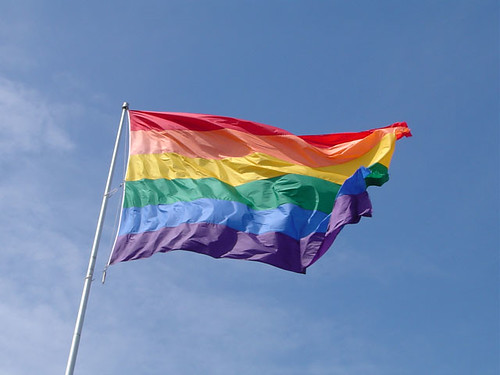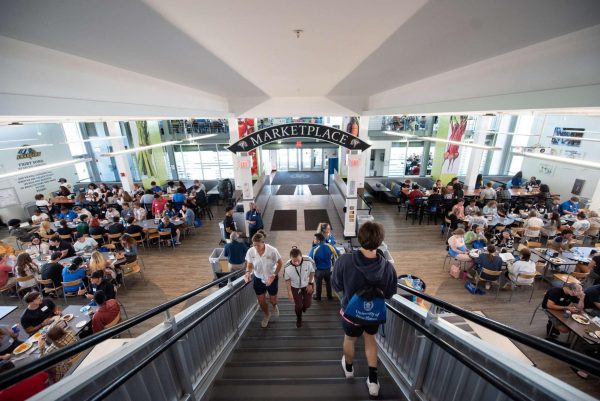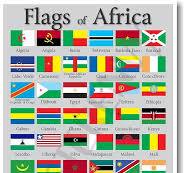LGBTQ+ students speak about campus experience; Lorenzo Boyd describes plans to improve
Campus-related events that occurred over the summer have led students and on-campus organizations to speak out about what they describe as offensive treatment of the LGBTQ+ community. With the hire of chief diversity officer and vice president for diversity and inclusion, Lorenzo Boyd, some campus members remain hopeful that improvement will occur.
Prior to the events, the university announced the internal hire of Boyd, who said he plans to use his new position to improve relations and treatment of the LGBTQ+ community.
On July 25, the day of the university’s virtual commencement ceremony, students took to social media to react to the university’s “deadnaming” of graduated forensic science major, Wren Ford, during the ceremony.
Deadnaming, according to Merriam-Webster, is the process of using “the name that a transgender person was given at birth and no longer uses upon transitioning.”
Following a flood of angry comments, the university issued a statement that said, in part, “We sincerely regret that this took place, and we take full responsibility for this error. We will be reaching out directly to the impacted student to extend our apologies. We understand how hurtful this is to the impacted student and the entire LGBTQ+ community.”
In an interview, Ford said that they were notified by a friend via a Snapchat screenshot of Ford’s graduation slide with their deadname, much to their surprise.
“I was kind of hoping it was going to be ignored,” said Ford. “Then, I remembered graduation is going to be seen by every student, and their families, and their friends, and the whole university community because it was online.”
As for their reaction to deadnaming: “I guess it was mildly surreal,” said Ford. “I had been going by Wren for about two years now, and even faculty members I had never told were completely normal with it.
“I saw, like, comments that were, like, ‘Well if you’re upset about it, then leave,’” said Ford, “and if you’re upset at someone else’s feelings, then you’re missing the point.”
“There’s always room to grow when it comes to, like, learning and educating others about the LGBT community,” said Lilyan Lauzon, President of PRIDE (People Rejoicing in Diversity Everywhere) “and if anything I think [the university] should be doing more of that.”
The university corrected Ford’s graduation slide days after the virtual commencement.
After speaking with Boyd, some students say they have already seen improvements, while others are wary of his hire.
Juan Hernández, former director of the campus Myatt Center for Diversity and Inclusion, said the center offers a minimum of four workshops a semester, including Safe Zone 101, “where we specifically focus on anything and everything LGBTQIA related — including what a deadname is, including with the transgender experience can be like on a campus like ours.”
Hernández said that Safe Zone training is not mandatory for staff and faculty, but they have the option to sign up and participate.
“Most of the time,” said Hernández, “we’ll have, like, one or two people sign up, and for an interactive workshop, that’s not enough.”
Adam McPhillips, president of SPECTRA (Sexuality, Pride, Education, Change, Truth, Respect, Advocacy) and executive assistant of PRIDE, said he’d like to see such training be mandatory.
Prior to leaving the university, Hernández said he planned to hold meetings and tablings throughout the year as an attempt to increase diversity and visibility for LGBTQ students on campus.
Lauzon said she would like to see students involved in the hiring process for the new director of the Myatt Center.
“I think it would be helpful if during the hiring process, for that position, students who are directly affected by the Myatt Center are a part of the appointment process, if that be in a form of a focus group for the interviews and to allow student thoughts to be heard on the potential applicant,” she said.
On July 22, PRIDE and SPECTRA hosted a “Problems LGBT+ Students Face at UNewHaven Discussion” Zoom event, which Boyd joined.
“He told us he was working on stuff,” said McPhillips. “He was talking to people to see what he can do and how he can start helping us.”
McPhillips said he was pleased to see Boyd reached out.
In an interview with the Charger Bulletin, Boyd said his plans begin with a two-fold training process through human resources for employees, and one through the Myatt Center for students. However, because of the pandemic, he does not know how soon that will begin.
Boyd said he is also redesigning the IDEA (Inclusion, Diversity, Equity, and Access) Council with the new dean of students and chief of student affairs, Ophelie Rowe-Allen. He said he would be able to bring the council’s ideas to the vice president’s office directly.
McPhillips said that there needs to be better communication with the offices, and Boyd agreed.
Boyd said he is also working with associate vice president and chief facilities officer, Lou Annino, to increase the number of gender-inclusive bathrooms on campus.
“Students that are transitioning, if they need a gender-neutral bathroom, for them to have to walk past two or three other buildings is not fair to them,” said Boyd.
As for deadnaming a graduate, Boyd said:
“When I hear that people are pained — not just students, but people, in general — the one thing that I keep preaching to anyone that will listen before we can move forward, we have to acknowledge people’s pain.”
Boyd also said that the university can improve and prevent such an incident from happening again.
“The big thing is there’s a lot of people that don’t understand the concept, and they don’t know what it means, and they don’t know why people are upset about it,” Boyd said. “So, an information campaign is huge, just like letting people know. And a lot of times when I explain to people, you see the little light bulb come up and they’re like, ‘Oh! OK.’”
“It’s not just enough to say ‘oh, you were deadnamed, my mistake, that was an accident, I’m sorry,’” said Boyd. “The next thing is this happened, how then do we fix it? Because it’s about being restorative.”
Lauzon said the university is addressing problems, apologizing for them, and moving forward with their community.
“The university is improving, overall, the relationship with the LGBT+ community,” said Lauzon, “and it does feel that their outreach and the things they’re planning to do with us is more sincere, and it will be helpful for students in that community.”
Boyd plans to build a Student Advisory Center for the university with RSOs. He said that organizations like USGA, NAACP, and College Republicans should have a variety of backgrounds and viewpoints.
“When people understand the lived experience of others, they are more likely to empathize, and it’s the othering of people that’s problematic,” said Boyd. “When we start to see everybody as Chargers — the diversity of Chargers — I think that’ll be helpful.”
“The best thing that we can do is to be open and willing to start those conversations so we can help each other best support each other and educate each other,” said Lauzon
LGBTQ+ students can use the link in SPECTRA’s Instagram bio for resources; the counseling center suggests reaching out to PRIDE, SPECTRA, CAPS, or the Myatt Center in seeking help or guidance.
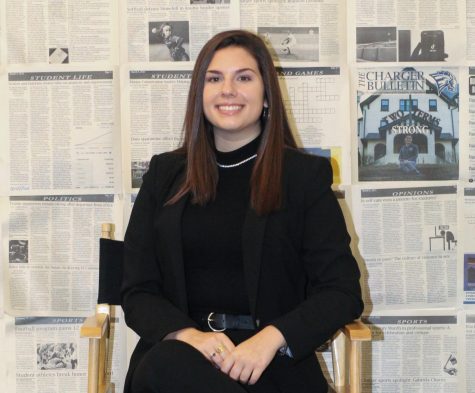
Kayla Mutchler is a senior studying communication double concentrating in journalism and digital media. She joined The Charger Bulletin as a staff writer...
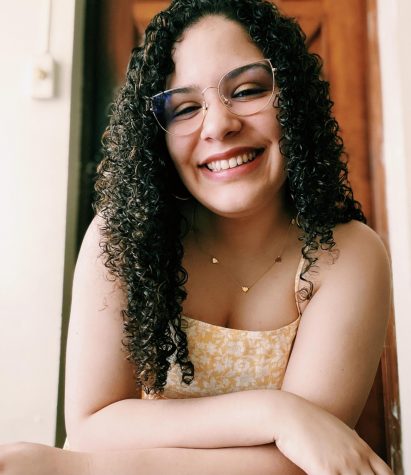
Amanda is a senior majoring in communication with a concentration in journalism, and a double minor in political science and English. She has been involved...



